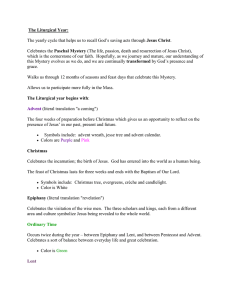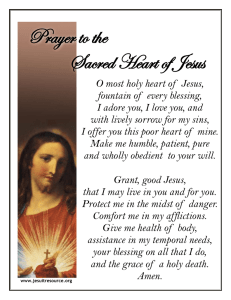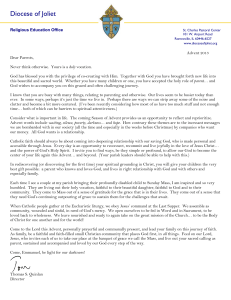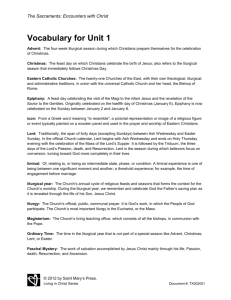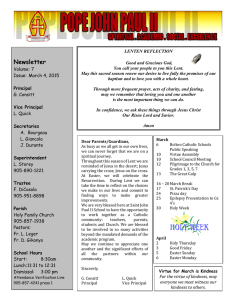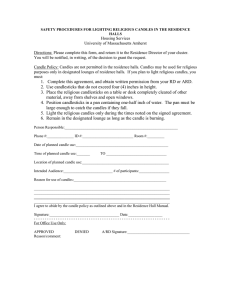The Liturgical Year: Jesus Christ Paschal Mystery
advertisement
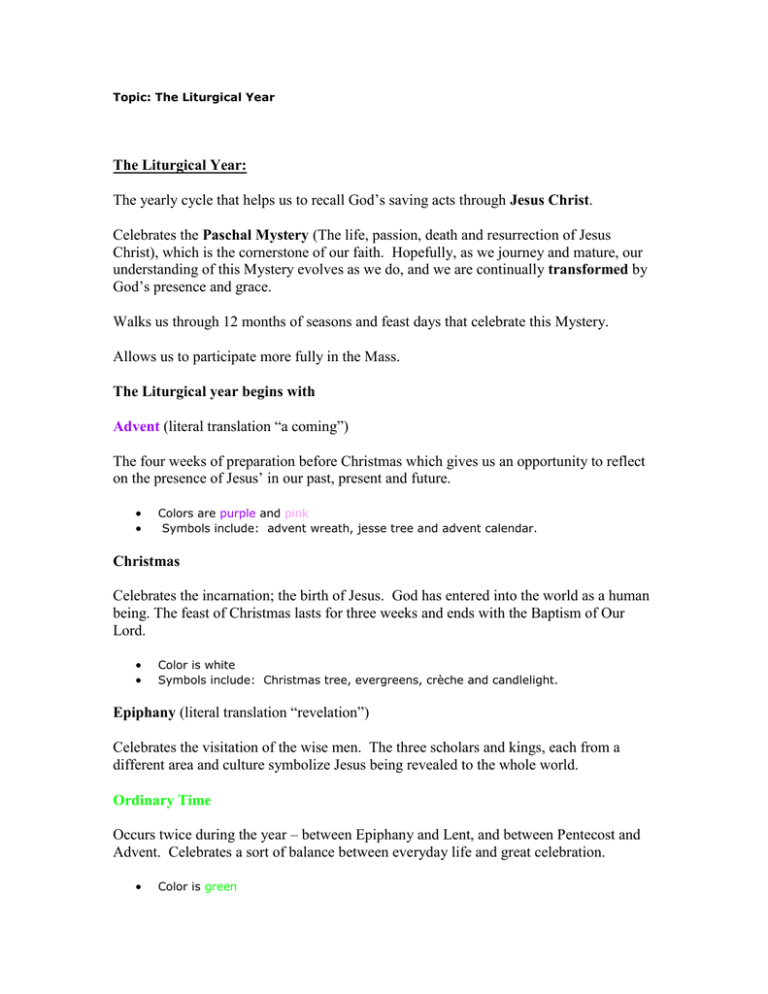
Topic: The Liturgical Year The Liturgical Year: The yearly cycle that helps us to recall God’s saving acts through Jesus Christ. Celebrates the Paschal Mystery (The life, passion, death and resurrection of Jesus Christ), which is the cornerstone of our faith. Hopefully, as we journey and mature, our understanding of this Mystery evolves as we do, and we are continually transformed by God’s presence and grace. Walks us through 12 months of seasons and feast days that celebrate this Mystery. Allows us to participate more fully in the Mass. The Liturgical year begins with Advent (literal translation “a coming”) The four weeks of preparation before Christmas which gives us an opportunity to reflect on the presence of Jesus’ in our past, present and future. Colors are purple and pink Symbols include: advent wreath, jesse tree and advent calendar. Christmas Celebrates the incarnation; the birth of Jesus. God has entered into the world as a human being. The feast of Christmas lasts for three weeks and ends with the Baptism of Our Lord. Color is white Symbols include: Christmas tree, evergreens, crèche and candlelight. Epiphany (literal translation “revelation”) Celebrates the visitation of the wise men. The three scholars and kings, each from a different area and culture symbolize Jesus being revealed to the whole world. Ordinary Time Occurs twice during the year – between Epiphany and Lent, and between Pentecost and Advent. Celebrates a sort of balance between everyday life and great celebration. Color is green Lent The 40 days of preparation for Easter. Begins with Ash Wednesday and ends with Holy Week (Palm Sunday through the Easter Triduum: Holy Thurs, Good Fri & Holy Sat). Color is purple Easter Celebrates the Resurrection of Jesus Christ as our Lord and Savior. Easter lasts for 50 days and ends with Pentecost. Color is white Pentecost The day which celebrates the coming of the Holy Spirit and the commissioning of the disciples. Color is red Read pages 138-142 in your Catholic Faith Handbook
